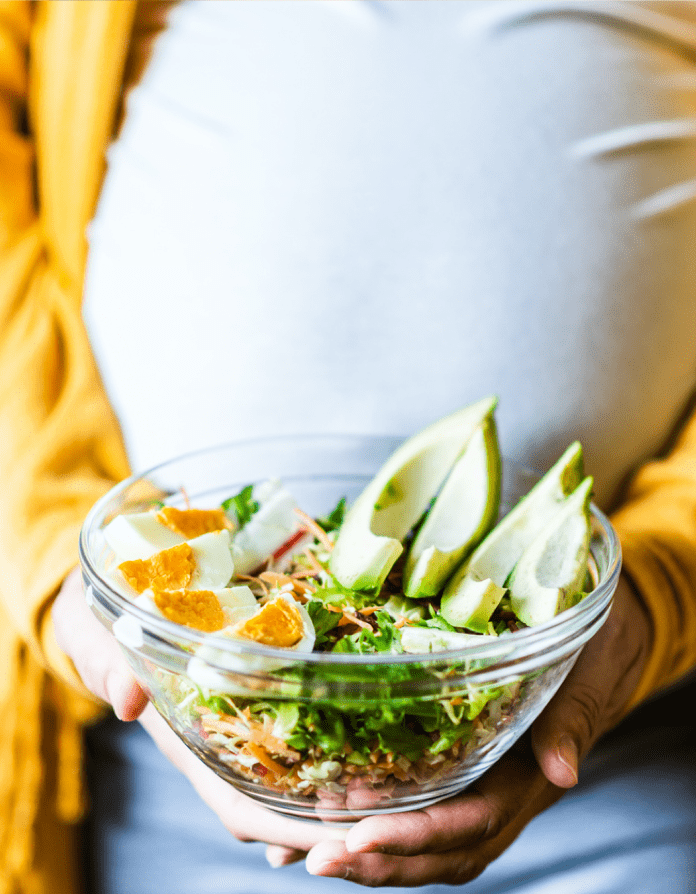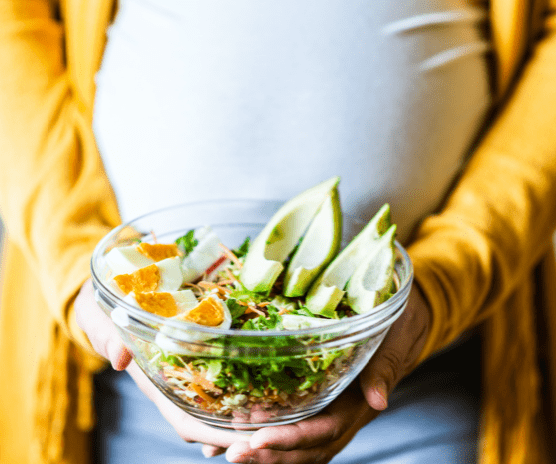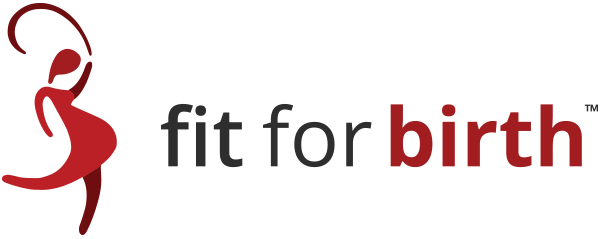Four Holistic Pregnancy Health Tips
for Fitness Professionals

Despite living in an age that demands quick fixes and pill-popping remedies, the synergistic combination of wellness factors may prove more effective for preparing our mothers-to-be and their unborn children for optimal health. For fitness professionals, understanding foundational elements beyond exercise is critical for inspiring the highest level of health for our pre and postnatal clients.
Pregnancy offers a unique opportunity for re-establishing wellness. Science continues to reveal that the rising rates of infertility, mechanized childbirth and infant chronic disease are caused by a combination of stress, environmental factors and personal health choices. Evidence for a preventive and integrative approach continues to mount.
It has already been established that infertility and infant disease are linked to preconception and perinatal conditions, choices that parents make before and while pregnant. Stress reduction, improved nutrition, environmental toxin reduction, and improved overall maternal health can positively impact infertility and infant disease rates. Furthermore, it has been more than a decade since exercise has been proven to significantly counter the incredibly high rates of surgery and drugs during labor and deliveries.
Together, stress reduction, nutrition, home detox and exercise are four “medicines” that are difficult to bottle and sell. This is where pre and postnatal fitness professionals can have a powerful impact.
Fitness professionals are often a primary source of general health information for our clients. In addition to exercise, we can teach our clients techniques for de-stressing, reducing household toxins, remaining well-hydrated, and eating natural foods.
What follows are some key facts and coaching considerations that can easily be added to your coaching during a personal pre-conception or prenatal training session.
BLOG TOPICS
RECOMMENDED

#1 De-Stressing
“Positive maternal emotions have been shown to advance the health of the unborn child,” says Thomas Verny, MD, who is the author of Pre-Parenting, Nurturing Your Child from Conception, and considered one of the world’s leading authorities on prenatal psychology. Verny wrote, “…thoughts which infuse the developing baby with a sense of happiness or calm can set the stage for a balance, happy, and serene disposition throughout life.” Although a multitude of methods exist, from visualization to meditation, prayer, and journaling, finding a method that you and your clients believe in is the key.
#2 Removing Household Toxins
Choosing natural household products and cleaners is another big step toward achieving prenatal wellness. Many people do not realize that most of their dangerous environmental toxins are usually ones they’ve brought into their own home. Key areas for your pregnant clients to look into are: filtering drinking and bathing water, buying natural household products, avoiding chemical cosmetics and synthetic air fresheners, and staying far away from any lawn that has been treated with pesticides or fertilizers. Some fertilizers and cosmetic ingredients are known to cause birth defects. You can dramatically increase the value of your services by bringing awareness to your prenatal clients.
#3 Basic Nutrition Foundations
Since the majority of women are dehydrated prior to conception, the first nutritional component they should consider when pregnant is drinking water. Once pregnant, the developing fetus places enormous demands for water. F. Batmanghelidj, MD, (“Dr. B”), author of books like, Your Body’s Many Cries for Water and Water for Health, for Healing, for Life, discusses pregnancy: “By the time it grows to be a full term baby, about a trillion cell divisions will have taken place.” He also says, “Every time a cell gives rise to a daughter cell, 75 percent or more of its volume has to be filled with water. In short, growth depends on the availability of water.” The importance of water in the pregnant body is further emphasized with the following jingle that I’ve often heard one of my mentors, Paul Chek, HHP, announce: “The solution for pollution is dilution.” Water is needed to flush daily cellular (and other) toxins away from mother-to-be as well as baby.
Then there are the foods our pre-conception and pregnant clients are eating. In a nutshell, it seems wise to choose natural unprocessed “in-tact” foods that are not grown with chemicals or pesticides. “The diet we enjoy in the twenty-first century differs markedly from the diet enjoyed by past generations,” says Carol Simontacchi, certified clinical nutritionist, and author of The Crazy Makers: How the Food Industry is Destroying Our Brains and Harming Our Children. She explains the traditional diet of past generations, “The one commonality they have is that the traditional diets are nutrient-rich in proteins, essential fats, unrefined carbohydrates (in the form of brightly colored vegetables and limited grains and fruit), and micronutrients (vitamins, minerals, and enzymes).” Finally, “Our diet of highly processed foods and artificial beverages,” compares Simontacchi, “doesn’t build better babies.”


#4 Exercise Before, During, and After Pregnancy
Of course, exercise is a powerful “medicine” for perinatal women. And it is now research-proven to be a remarkable aid in the birthing process. Several decades of research was performed by Dr. James F. Clapp, III, and published in Exercising Through Your Pregnancy, now in its second edition.
Concerning labor difficulties, Clapp writes, “The women who continued to exercise had a striking increase (more than 30 percent) in the incidence of uncomplicated, spontaneous delivery, and, the duration of active labor was much shorter.” In fact, the percentage improvement regarding necessity of drugs and surgery during delivery is astounding for women who exercised, and is detailed one after the other in Clapp’s research. Clapp summarizes, “All aspects of growth and development after birth in babies from exercising mothers are equal to or better than those observed in the [offspring of mothers who did not exercise].”
Four Business-Building Action Steps for Prenatal Fitness Professionals
If you are a wellness professional who works with prenatal clients, teaching them to apply just some of these foundational components is critical to providing the highest quality service to your clients.
Considerations for the pre and postnatal fitness professional:
- Lead your client through some kind of mental imagery, meditation or positive journaling as part of her session time with you.
- Offer your client a session at the grocery store, where you coach her on choosing healthier foods and home products.
- Help your client track her water intake, aiming for more than half her bodyweight in ounces each day. (Remember that other beverages generally don’t count).
- Inspire your client to maintain her exercise even during challenging times of pregnancy (ie. morning sickness, third trimester discomforts). Consider offering shorter sessions more frequently, and/or online video call sessions that make it convenient for her to work with you.
In addition to offering better service to your pre and postnatal clients, fitness professionals can use any one of these four action steps to adjust your business and take it to the next level. You can build your “niche within a niche” by being “the prenatal trainer that trains your mind as well” or the one who “will detox your home and kitchen.” The opportunities are vast when you have the right information, and followup with your personal passion. Happy prenatal training!
¹ A 2012 EEA report covering disease and infertility that these chemicals can be found in “food, pharmaceuticals, pesticides, household products and cosmetics.” http://www.eea.europa.eu/media/newsreleases/increase-in-cancers-and-fertility
² Clapp, James F. III. Exercising Through Your Pregnancy. Originally published in 2002, Dr. Clapp’s research revolutionized what we thought about the pregnant body; the only problem is that the message hasn’t yet reached the ears that need it most.

James Goodlatte is a Holistic Health Coach, corrective exercise practitioner, speaker, author, and professional educator. His passion is to heal families by inspiring the use of natural methods and by building a global team of fitness & health professionals to reduce infertility, avoid mechanized childbirth, and reduce chronic disease in our infants.
As the founder of Fit For Birth, Inc, he is a driving force for providing Continuing Education Credits for the pre and postnatal world. As a writer, his articles have been published in a dozen languages and have inspired contact from pre and postnatal women, as well as health professionals in over 150 countries.
LEAVE A NEW comment
Leave a Reply
Your email address will not be published. Required fields are marked *
Four Holistic
Pregnancy
Health Tips
for Fitness Professionals
Despite living in an age that demands quick fixes and pill-popping remedies, the synergistic combination of wellness factors may prove more effective for preparing our mothers-to-be and their unborn children for optimal health. For fitness professionals, understanding foundational elements beyond exercise is critical for inspiring the highest level of health for our pre and postnatal clients.
Pregnancy offers a unique opportunity for re-establishing wellness. Science continues to reveal that the rising rates of infertility, mechanized childbirth and infant chronic disease are caused by a combination of stress, environmental factors and personal health choices. Evidence for a preventive and integrative approach continues to mount.
It has already been established that infertility and infant disease are linked to preconception and perinatal conditions, choices that parents make before and while pregnant. Stress reduction, improved nutrition, environmental toxin reduction, and improved overall maternal health can positively impact infertility and infant disease rates. Furthermore, it has been more than a decade since exercise has been proven to significantly counter the incredibly high rates of surgery and drugs during labor and deliveries.
Together, stress reduction, nutrition, home detox and exercise are four “medicines” that are difficult to bottle and sell. This is where pre and postnatal fitness professionals can have a powerful impact.
Fitness professionals are often a primary source of general health information for our clients. In addition to exercise, we can teach our clients techniques for de-stressing, reducing household toxins, remaining well-hydrated, and eating natural foods.
What follows are some key facts and coaching considerations that can easily be added to your coaching during a personal pre-conception or prenatal training session.

#1 De-Stressing
“Positive maternal emotions have been shown to advance the health of the unborn child,” says Thomas Verny, MD, who is the author of Pre-Parenting, Nurturing Your Child from Conception, and considered one of the world’s leading authorities on prenatal psychology. Verny wrote, “…thoughts which infuse the developing baby with a sense of happiness or calm can set the stage for a balance, happy, and serene disposition throughout life.” Although a multitude of methods exist, from visualization to meditation, prayer, and journaling, finding a method that you and your clients believe in is the key.
#2 Removing Household Toxins
Choosing natural household products and cleaners is another big step toward achieving prenatal wellness. Many people do not realize that most of their dangerous environmental toxins are usually ones they’ve brought into their own home. Key areas for your pregnant clients to look into are: filtering drinking and bathing water, buying natural household products, avoiding chemical cosmetics and synthetic air fresheners, and staying far away from any lawn that has been treated with pesticides or fertilizers. Some fertilizers and cosmetic ingredients are known to cause birth defects. You can dramatically increase the value of your services by bringing awareness to your prenatal clients.

#3 Basic Nutrition Foundations
Since the majority of women are dehydrated prior to conception, the first nutritional component they should consider when pregnant is drinking water. Once pregnant, the developing fetus places enormous demands for water. F. Batmanghelidj, MD, (“Dr. B”), author of books like, Your Body’s Many Cries for Water and Water for Health, for Healing, for Life, discusses pregnancy: “By the time it grows to be a full term baby, about a trillion cell divisions will have taken place.” He also says, “Every time a cell gives rise to a daughter cell, 75 percent or more of its volume has to be filled with water. In short, growth depends on the availability of water.” The importance of water in the pregnant body is further emphasized with the following jingle that I’ve often heard one of my mentors, Paul Chek, HHP, announce: “The solution for pollution is dilution.” Water is needed to flush daily cellular (and other) toxins away from mother-to-be as well as baby.
Then there are the foods our pre-conception and pregnant clients are eating. In a nutshell, it seems wise to choose natural unprocessed “in-tact” foods that are not grown with chemicals or pesticides. “The diet we enjoy in the twenty-first century differs markedly from the diet enjoyed by past generations,” says Carol Simontacchi, certified clinical nutritionist, and author of The Crazy Makers: How the Food Industry is Destroying Our Brains and Harming Our Children. She explains the traditional diet of past generations, “The one commonality they have is that the traditional diets are nutrient-rich in proteins, essential fats, unrefined carbohydrates (in the form of brightly colored vegetables and limited grains and fruit), and micronutrients (vitamins, minerals, and enzymes).” Finally, “Our diet of highly processed foods and artificial beverages,” compares Simontacchi, “doesn’t build better babies.”

#4 Exercise Before, During, and After Pregnancy
Of course, exercise is a powerful “medicine” for perinatal women. And it is now research-proven to be a remarkable aid in the birthing process. Several decades of research was performed by Dr. James F. Clapp, III, and published in Exercising Through Your Pregnancy, now in its second edition.
Concerning labor difficulties, Clapp writes, “The women who continued to exercise had a striking increase (more than 30 percent) in the incidence of uncomplicated, spontaneous delivery, and, the duration of active labor was much shorter.” In fact, the percentage improvement regarding necessity of drugs and surgery during delivery is astounding for women who exercised, and is detailed one after the other in Clapp’s research. Clapp summarizes, “All aspects of growth and development after birth in babies from exercising mothers are equal to or better than those observed in the [offspring of mothers who did not exercise].”

Four Business-Building Action Steps for Prenatal Fitness Professionals
If you are a wellness professional who works with prenatal clients, teaching them to apply just some of these foundational components is critical to providing the highest quality service to your clients.
Considerations for the pre and postnatal fitness professional:
- Lead your client through some kind of mental imagery, meditation or positive journaling as part of her session time with you.
- Offer your client a session at the grocery store, where you coach her on choosing healthier foods and home products.
- Help your client track her water intake, aiming for more than half her bodyweight in ounces each day. (Remember that other beverages generally don’t count).
- Inspire your client to maintain her exercise even during challenging times of pregnancy (ie. morning sickness, third trimester discomforts). Consider offering shorter sessions more frequently, and/or online video call sessions that make it convenient for her to work with you.
In addition to offering better service to your pre and postnatal clients, fitness professionals can use any one of these four action steps to adjust your business and take it to the next level. You can build your “niche within a niche” by being “the prenatal trainer that trains your mind as well” or the one who “will detox your home and kitchen.” The opportunities are vast when you have the right information, and followup with your personal passion. Happy prenatal training!
¹ A 2012 EEA report covering disease and infertility that these chemicals can be found in “food, pharmaceuticals, pesticides, household products and cosmetics.” http://www.eea.europa.eu/media/newsreleases/increase-in-cancers-and-fertility
² Clapp, James F. III. Exercising Through Your Pregnancy. Originally published in 2002, Dr. Clapp’s research revolutionized what we thought about the pregnant body; the only problem is that the message hasn’t yet reached the ears that need it most.

James Goodlatte is a Holistic Health Coach, corrective exercise practitioner, speaker, author, and professional educator. His passion is to heal families by inspiring the use of natural methods and by building a global team of fitness & health professionals to reduce infertility, avoid mechanized childbirth, and reduce chronic disease in our infants.
As the founder of Fit For Birth, Inc, he is a driving force for providing Continuing Education Credits for the pre and postnatal world. As a writer, his articles have been published in a dozen languages and have inspired contact from pre and postnatal women, as well as health professionals in over 150 countries.


